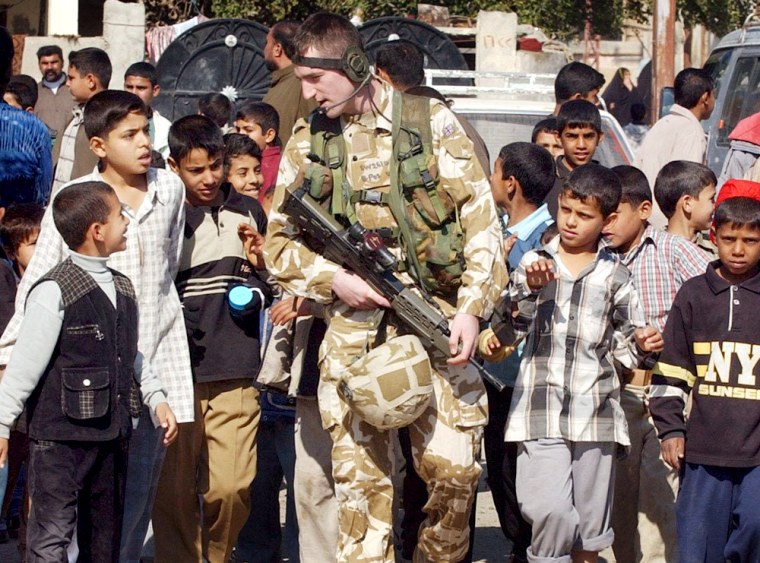As Iraqis prepare to vote Sunday, the British government has reaffirmed its commitment to the war by flying in more troops.
The recent arrival of some 400 reinforcements has raised the number of British military personnel serving in Iraq to 8,700, according to the Ministry of Defense.
During a recent visit with some of those troops, Prime Minister Tony Blair said, "The British aren't a nation of quitters." Of British involvement in the conflict, he said, "We did the right thing."
After a newspaper report suggested Blair might be pressuring the United States to set a timetable for removing coalition troops from Iraq, a spokesman denied it. "‘We will not cut and run’ is what the prime minister said in April and that remains our position."
Potential political stakes at home
For Great Britain and the Blair government the war in Iraq has been costly — on several levels.
Since the fighting began, 75 British military personnel have been killed in Iraq.
Three British soldiers are being tried now on charges they abused Iraqi detainees shortly after the U.S. led invasion in 2003. Pictures offered as evidence at the trial showed bound Iraqis, some in sexually suggestive positions, and were recently splashed over British newspapers.
Blair was forced to publicly address the accusations, telling members of parliament, "Everyone finds those photographs shocking and appalling, and there are simply no other words to describe them."
In the meantime, British public support for the war has steadily declined. Two recent polls revealed only 35 to 38 percent approval for the invasion of Iraq.
"The British public is disillusioned," said Andrew Neil, a British political commentator.
Many people blame Blair for what they see as his blind support for President Bush, who is not particularly popular in Britain and much of Europe.
Speaking of her prime minister, one woman in London said, "I think he got into something that he didn't think through. And now it is worse and worse and costing everyone a lot of money."
A political cartoon in The Times newspaper shows an Oscar-award-like statuette, with Bush holding his arms around Blair. With an image of Iraq burning in the background, the base of the award reads, "Best Support for a Disaster Epic."
Two elections potentially linked
Three polling places for Iraqi expatriates have been set up in the United Kingdom — in London, Manchester and Glasgow.
About 250,000 Iraqis are believed to live in Britain, 150,000 of whom are eligible to vote, according to the British Broadcasting Corp. Of those eligible, 30,961 have registered to vote here.
With Britain expected to call its own national elections this spring, political analysts believe the aftermath of the Iraq vote could have a direct bearing on Blair and his Labor Party, which currently holds a large majority in parliament.
As it stands now, Blair enjoys a clear lead in the polls, but Neil, the political commentator, warned, "If it continues to get bad (in Iraq) through March, April into May when our election will be, and British casualties rise, it's a big enough axe to take his majority (in Parliament).
"If elections go well and things get back to some semblance of normality," Neil added, "he can say we did the right thing."
